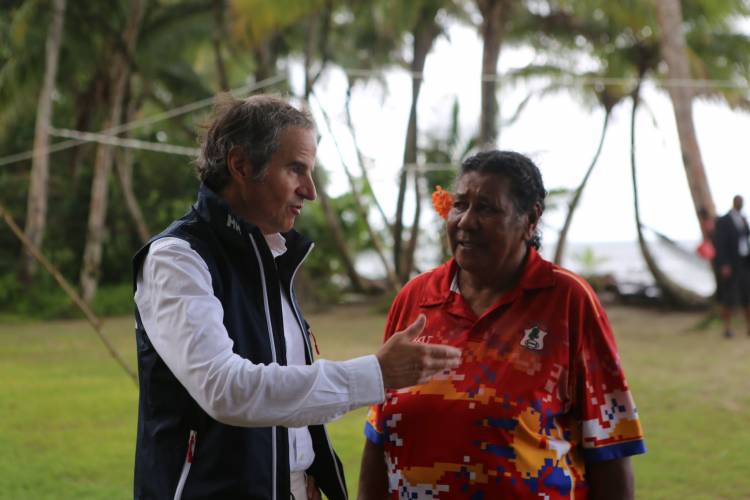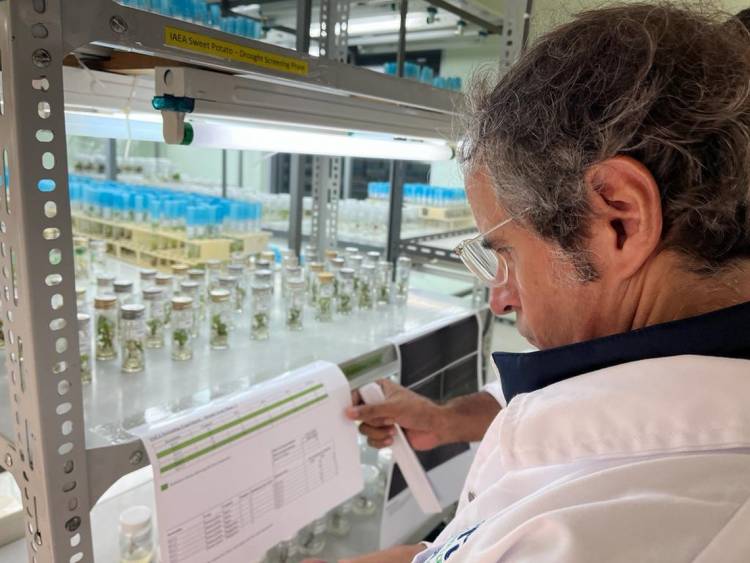As Japan prepares to discharge treated water from the site of the Fukushima Daiichi Nuclear Power Station into the Pacific Ocean, IAEA Director General Rafael Mariano Grossi was in Fiji this week to listen to the concerns and views of Pacific nation leaders and explain the IAEA’s role as an independent, scientific, and neutral body in monitoring the plans. During the two-day trip to the archipelago, Mr Grossi met with ministers from the region, and visited climate change affected communities, a university, and a research centre working with the IAEA.
Joining the Pacific Islands Forum in the country’s capital, Suva, Mr Grossi explained the IAEA’s role in Japan’s discharge plans. “The concerns of Pacific islanders are important and legitimate,” he said and emphasized the IAEA’s commitment to transparency and neutrality in the process.
In April 2021, Japan announced the Basic Policy on handling of the treated water stored at the Fukushima Daiichi Nuclear Power Station, which is to discharge the treated water into the sea surrounding the plant, subject to domestic regulatory approvals. Soon after, the country’s authorities requested assistance from the IAEA to monitor and review those plans and activities. Mr Grossi has set up a Task Force composed of independent experts, including from the region, to provide Japan and the international community with an objective and science-based safety review of the discharge activities at the site.
Meeting with Fiji’s Minister for Health and Medical Services Ifereimi Waqainabete, the two spoke about the IAEA’s Rays of Hope initiative and increasing access to life-saving cancer treatment options, such as radiotherapy. Mr Grossi said the initiative, launched in February this year, could help provide increased access to cancer care access in the Pacific region.
Mr Grossi spoke with ministers from different Pacific nations, including the Marshall Islands’ Minister of Education, Sports and Training Kitlang Kabua. On the margins for the Forum, Mr Grossi also met with Tonga’s Minister of Foreign Affairs Fekitamoeloa ʻUtoikamanu. Tonga is one of the IAEA’s newest Member States, having joined in March this year. Mr Grossi congratulated Ms ʻUtoikamanu and expressed his eagerness to work more closely with Tonga on sustainable development and ocean issues.
Communities in the Pacific are in many ways the ‘canary in the coal mine’ when it comes to climate change. Hardly responsible for the carbon emissions in our atmosphere, they today face some of the worst consequences of climate change. Nuclear science and technology have roles to play in supporting these communities and addressing this challenge, so we must do more.






